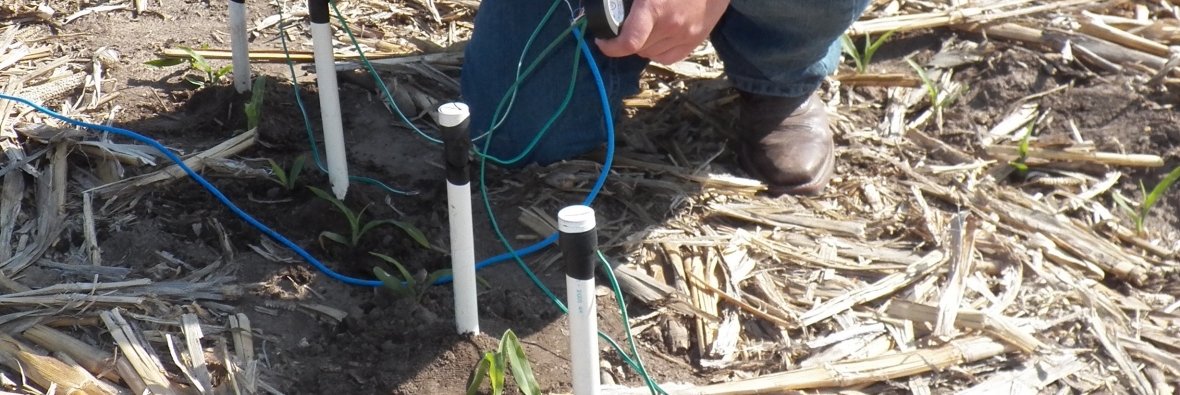Conservation Programs
Tri-Basin NRD offers a variety of cost-share programs to landowners in Phelps, Gosper and Kearney counties in Nebraska. The items below provide detailed information about each program or service.
Conservation Trees Cost-Share
Windbreak and Windbreak Renovation Cost-share is available for removing old windbreaks and planting new ones. It is best to plan a windbreak renovation at least one year in advance to allow for cost-share application, old windbreak removal, proper ground preparation and seedling planting. In order to be eligible for funding, cost-share applications must be approved by the NRD board before you start a project. The site must be inspected prior to starting any work. Your NRCS office can help with the plans and paperwork.
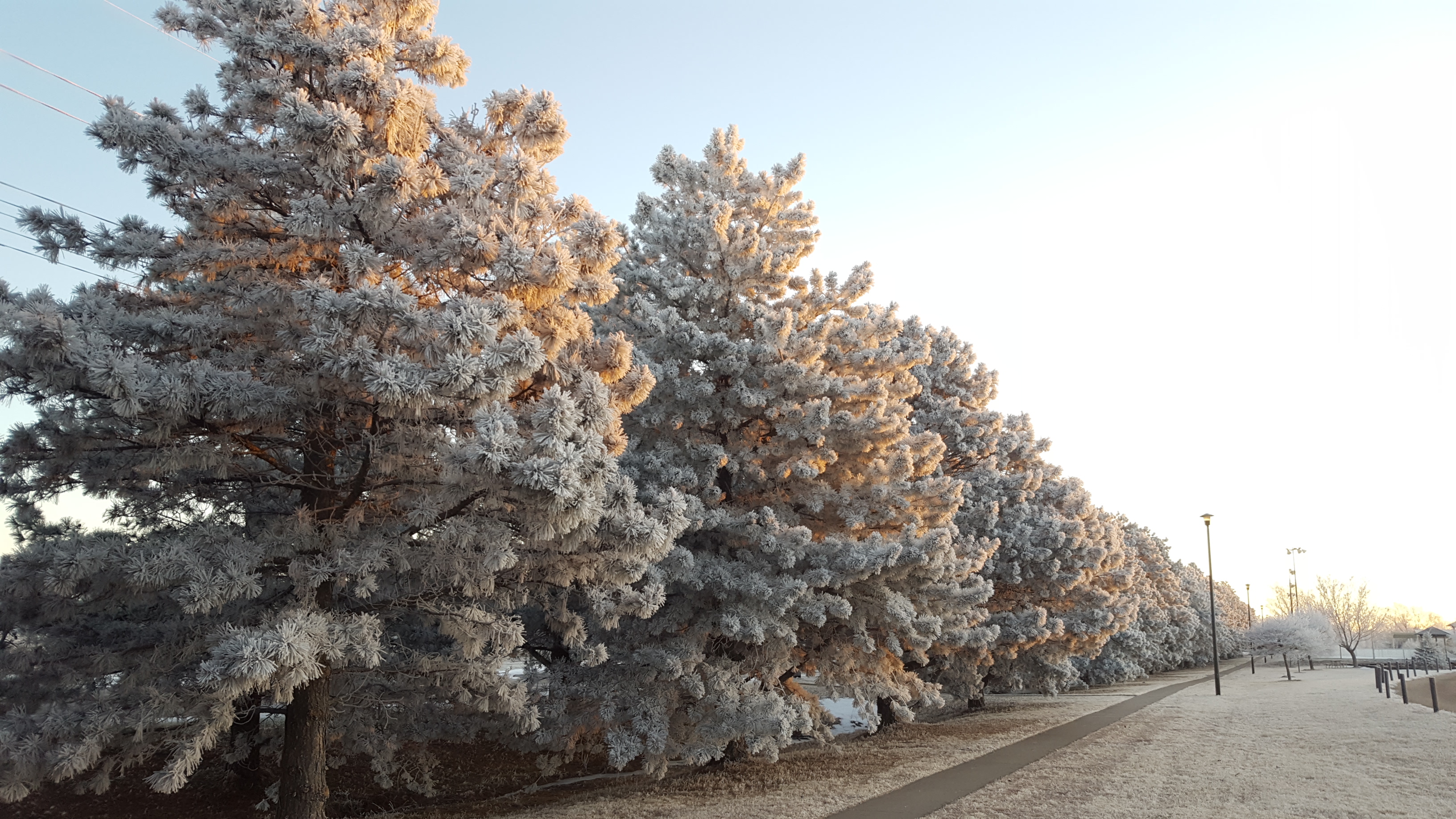
Cost-share funds for trees and plastic mulch are available through the Nebraska Soil and Water Conservation Program (NSWCP) or the Tri-Basin NRD cost-share fund. You should apply at your county NRCS office before March 1. All sites must be properly prepared before planting to qualify for cost-share. Reimbursement is made only after full payment is received. The minimum project size eligible for cost-share is $500 (and 750 feet). There may also be limited cost-share available from your county USDA Farm Service Agency. Pheasants Forever offers programs for wildlife habitat improvement. NRCS staff can help you determine which program has funds available and best suits your needs.
Tri-Basin NRD bills for trees-tree planting service after completion. Full payment is due upon receipt of the billing. Cost-share forms will not be finalized until payment is received at the Tri-Basin or NRCS office.
For more information about cost-share programs, contact Carie Lynch at clynch@tribasinnrd.org.
Related Link:
Nebraska Buffer Strip Program
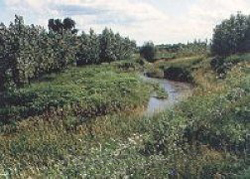 What is a Buffer? Conservation buffers are best described as strips or other areas of land in permanent vegetation that help control pollutants and manage other environmental concerns. Conservation buffers are a simple way to help you stay profitable and protect your most valuable asset: your land. Buffers are also a great way to demonstrate your commitment to conservation.
What is a Buffer? Conservation buffers are best described as strips or other areas of land in permanent vegetation that help control pollutants and manage other environmental concerns. Conservation buffers are a simple way to help you stay profitable and protect your most valuable asset: your land. Buffers are also a great way to demonstrate your commitment to conservation.
How to sign up: The staff at your local Natural Resources Conservation Service (NRCS) office (Minden, Holdrege, or Elwood) or at Tri-Basin NRD can help you identify the buffer practices best suited to your operation. If your buffer strip application is approved, you can earn up to $250 per acre per year for the length of your contract period (usually 5 to 10 years). The Nebraska Buffer Strip Program is sponsored by the United State Department of 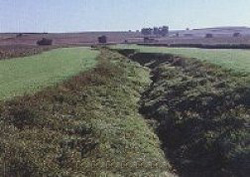 Agriculture.
Agriculture.
Click here to visit the Nebraska Department of Agriculture's website.
For more information about the Nebraska Buffer Strip Program, contact Nate Munter at nmunter@tribasinnrd.org.
Nebraska Soil and Water Conservation Program (NSWCP)
The Nebraska Soil and Water Conservation (NSWCP) Act, established in 1977, is administered by the Nebraska Department of Natural Resources. The Act established the Nebraska Soil and Water Conservation Fund, providing state financial assistance to Nebraska landowners for the installation of approved soil and water conservation measures that improve water quality, conserve water, and help control erosion and sedimentation. This program is funded by the Nebraska Unicameral.
The Nebraska Department of Natural Resources (DNR) is responsible for determining eligible practices and establishing 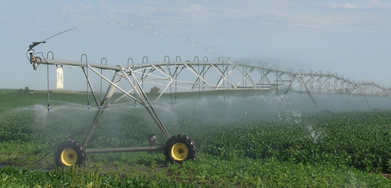 operating procedures for NSWCP. DNR allocates funds among the state's 23 Natural Resources Districts and approves payments to landowners. Natural resources districts are responsible for administering the NSWCP program at the local level according to state rules and regulations. The USDA/NRCS provides technical assistance in planning and developing the approved conservation measures. In order to be eligible for funding, cost-share applications must be approved by the NRD board before you start a project. Listed below are the cost-share practices available through Tri-Basin NRD:
operating procedures for NSWCP. DNR allocates funds among the state's 23 Natural Resources Districts and approves payments to landowners. Natural resources districts are responsible for administering the NSWCP program at the local level according to state rules and regulations. The USDA/NRCS provides technical assistance in planning and developing the approved conservation measures. In order to be eligible for funding, cost-share applications must be approved by the NRD board before you start a project. Listed below are the cost-share practices available through Tri-Basin NRD:
Eligible Nebraska Conservation (NC) Practices
NC - 1 Constructing Terrace Systems
NC - 2 Constructing Terrace Underground Outlets
NC - 3 Constructing Water Impoundment Dames
NC - 4 Constructing Grade Stabilization Structures
NC - 5 Constructing Irrigation Tailwater Recovery Pits with or without Underground Return Pipe
NC - 6 Constructing Diversions
NC - 7 Constructing Grasses Waterways
NC - 8 Constructing Water-and-Sediment-Control Basins
NC - 9 Constructing Dugouts for Livestock Water (runoff collection only)
NC - 10 Pasture Planting or Range Seeding (land use conversions)
NC - 11 Critical Area Planting (grass)
NC - 12 Windbreaks
NC - 13 Constructing Underground Return Pipe from Irrigation Tailwater Recovery Pits
NC - 14 Planned Grazing Systems
NC - 16 Windbreak Renovation
NC - 17 Irrigation Water Management
NC - 18 Stream Bank Stabilization
NC - 19 Repair of Practices
NC - 20 Brush Management
For more information about NSWCP, contact Sasha Hahn at shahn@tribasinnrd.org.
Links to related sites:
Nebraska Department of Natural Resources
Pheasants Forever/Corners for Wildlife
The Corners for Wildlife program began in 1995. Farmers can plant grasses or a m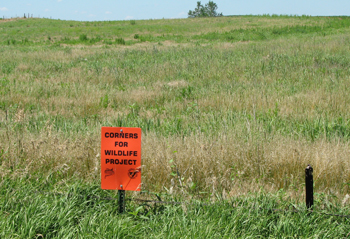 ixture of trees and shrubs. The program's purpose is to replant center pivot corners from crops into wildlife habitats. Nebraska is the only state with a Corners for Wildlife program and there is great demand by farmers to get into the program. Through the program, farmers agree to maintain the corners as a wildlife habitat for five years. Materials and equipment costs are paid by Pheasants Forever and the NRD pays for tree planting. The Nebraska Environmental Trust pays annual rent payments to the farmer, up to $100 per acre.
ixture of trees and shrubs. The program's purpose is to replant center pivot corners from crops into wildlife habitats. Nebraska is the only state with a Corners for Wildlife program and there is great demand by farmers to get into the program. Through the program, farmers agree to maintain the corners as a wildlife habitat for five years. Materials and equipment costs are paid by Pheasants Forever and the NRD pays for tree planting. The Nebraska Environmental Trust pays annual rent payments to the farmer, up to $100 per acre.
For more information about Pheasants Forever/Corners for Wildlife, contact Nate Munter at nmunter@tribasinnrd.org.
Check out these related websites!
Water Conservation Incentive Program (WCIP)
This program began in 2019 and was expanded in 2020. The goal of the program is to reduce groundwater pumping and increase irrigation water use efficiency in the Tri-Basin NRD. For more information about this program please contact John Thorburn or Tammy Fahrenbruch at 308-995-6688.
Groundwater Only (Original Program)
Commingled (Program Expansion)
Well Decommissioning Cost-Share Program
Groundwater is a valuable resource, which must be protected. The best way to insure good water quality is to prevent contamination before it occurs. A potential source for groundwater contamination is abandoned and improperly constructed water wells, which provide a direct conduit for pollutants to contaminate an aquifer. Abandoned wells can be found in almost any area. Some are easy to spot; many are hidden and represent a trap for people and animals.
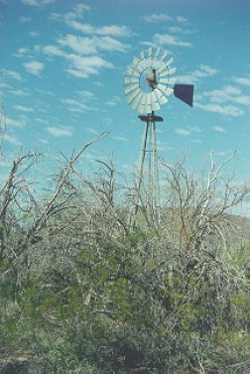 Abandoned and improperly constructed wells allow runoff directly down to the aquifer, often carrying fertilizer and chemical residues into the groundwater. The proper decommissioning of water wells is required by law. The basic concept in the proper decommissioning of wells is to return the well hole as near as possible to original conditions, then filling and properly sealing the well.
Abandoned and improperly constructed wells allow runoff directly down to the aquifer, often carrying fertilizer and chemical residues into the groundwater. The proper decommissioning of water wells is required by law. The basic concept in the proper decommissioning of wells is to return the well hole as near as possible to original conditions, then filling and properly sealing the well.
Tri-Basin NRD Requirements for Cost-Share: Tri-Basin NRD will cost-share on 60 percent, up to a maximum of $500 on decommissioning of all water wells other than hand-dug wells, and up to a maximum of $700 on hand-dug wells. The work must be performed by a licensed contractor (certified well driller). The Well Decommissioning Cost-Share application must be approved by TBNRD before the work is performed. The landowner has 6 months or until the end of the fiscal year (June 30), whichever comes first, to complete the well abandonment cost-share application and return it to TBNRD. When work is completed, an invoice totaling the cost of the abandonment and a Notice of Water Well Abandonment (that has been approved by DNR) must accompany the completed cost-share application that is sent to TBNRD.
Click here to print a Well Decommissioning Cost-Share Application and W-9.
For more information about Well Decommissioning Cost-Share, contact Esther Smith at esmith@tribasinnrd.org.

